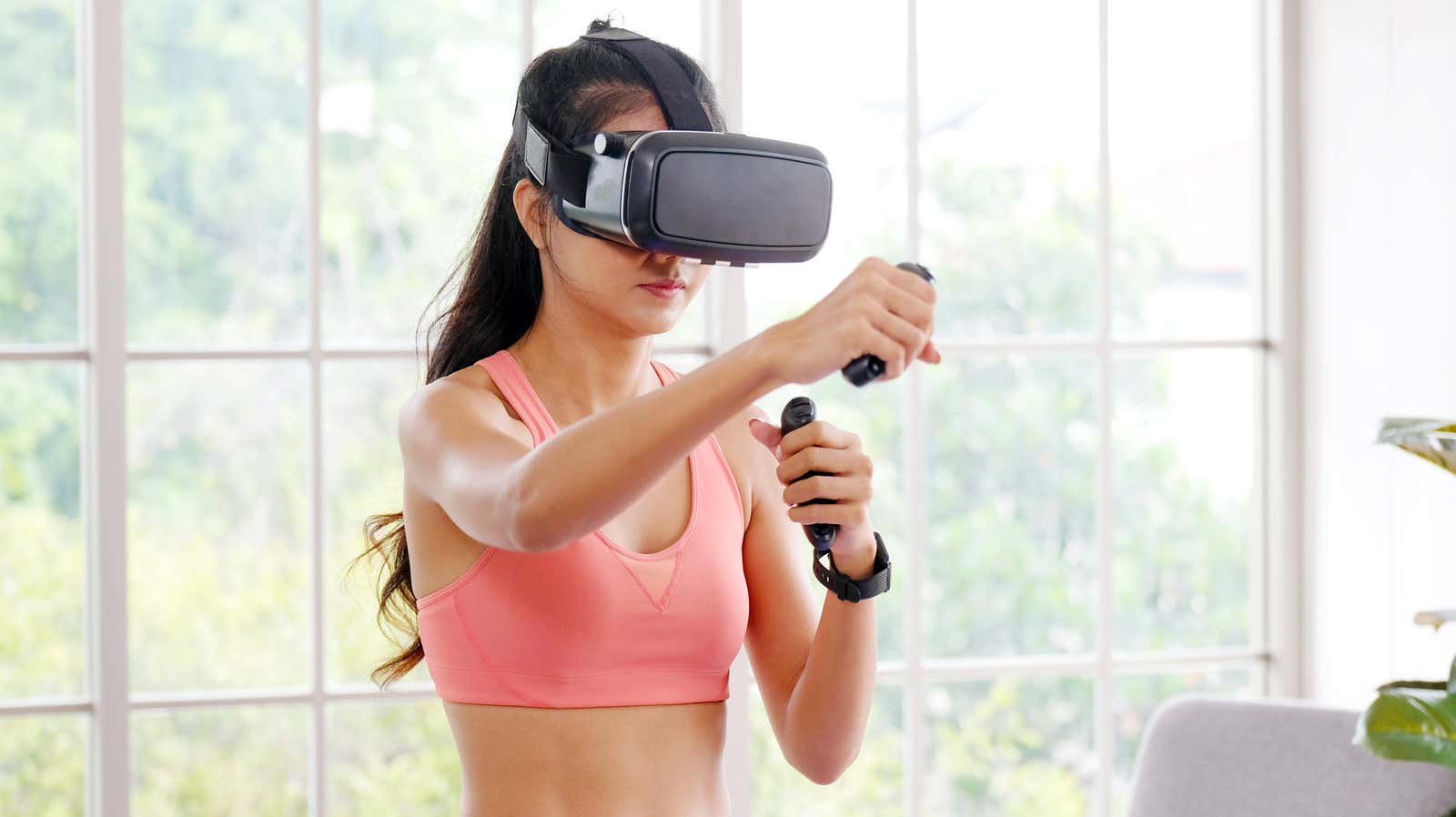Are VR Games Bad for Your Health?

Virtual reality gaming is now experiencing a surge in popularity, but some experts and industry observers are concerned that frequent use of the technology may come with some health risks, including eye fatigue, migraines and falls. Here’s what we know so far about the safety of VR and the potential health impacts – both negative and positive – that VR gaming can have.
Is VR bad for the eyes?
Some health risks in virtual reality seem obvious. While you’re wearing the headset, VR audio and video partially block out your environment, making it easier to trip and fall on nearby objects or pets that have passed by. However, users may develop other health risks over time. Some ophthalmologists, for example, are concerned about the potential eye strain caused by virtual reality and the long-term implications for eye-brain communication.
Excessive screen time is known to cause digital eye strain , a condition also called computer vision syndrome (CVS). There is nothing unique about VR headset LCD screens that can prevent digital eye strain, which means regular VR use can lead to cardiovascular disease and related symptoms such as headaches and visual fatigue. Fortunately, frequent screen breaks can help prevent CVS, and digital eye strain can also be reduced with special lenses.
Unfortunately , VR screens differ from regular LCD screens in one important way: instead of looking at just one screen, you have screens for each eye, each one just inches from your face. This dual-screen setup may contribute to what scientists call “vergence-accommodation conflict” – images that trick the eye into seeing something close as far away. Conflict is known to cause viewer fatigue and visual discomfort. For some users, it can also cause persistent headaches and nausea. The conflict can even cause vision problems in the long run.
Children, whose eyes and connections between eyes and brain have not yet fully developed, are most at risk of eye diseases associated with virtual reality. UC Berkeley optometry professor Martin Banks told CNN that too much time spent in virtual reality can put kids at risk for conditions like nearsightedness or nearsightedness.
Negative effects of VR gaming during illness or injury
Depending on underlying health conditions such as illness, injury, or a tendency to motion sickness, playing in VR can also be risky or just plain frustrating.
Mashable Games editor Tina Amini wrote about her experience over several days at GDC, the famous video game developer conference showcasing virtual reality games while recovering from a concussion, an injury that can cause a range of symptoms including balance problems, abnormal movement eyes and loss of coordination.
Amini’s takeaway from this experience was that VR gaming may contribute to concussion-induced symptoms such as motion sickness. This is just one person’s anecdote, but such anecdotes are gradually being confirmed and clarified by research and medical publications.
According to CNN , most VR devices advise you to speak to a doctor before using VR if you are “pregnant, elderly, or have pre-existing medical conditions that could affect your VR experience, such as visual anomalies, mental disorders, heart disease, or other serious problems. medical conditions.” Some alerts for seizures or power outages indicate that such events can occur even if the user does not have such a medical history.
One study found that virtual reality can elicit a strong emotional response —compared to the same experience displayed on a regular computer monitor—that can be difficult for people with certain mental illnesses to control. There are also concerns that the use of VR could slow or compromise the recovery of users who are recovering from illnesses such as sinus infections, headaches, vision problems, stomach problems, or even a cold. Such conditions require physical balance for successful recovery, which can be affected by virtual reality.
In short, while in healthy people virtual gaming is unlikely to cause long-term damage, it can make recovery from injury or illness more frustrating.
Can virtual reality really help improve health?
Jeremy Bailenson, founding director of the Virtual Human Interaction Lab at Stanford University, is more optimistic about the effects of virtual reality. He told the MIT Press podcast that he thinks virtual reality can actually make us healthier by blurring the line between the digital and the real world. With virtual reality, it is possible to experience virtual scenarios that feel almost as real as real ones – for example, interacting with virtual foods can help users eat less and feel fuller.
There is also a growing number of research into medical applications of virtual reality. Scientists have used VR games and simulations experimentally for a variety of purposes, including balance training and mental health programs.
So, is virtual reality safe? Research suggests that there may be some minor risks to VR gaming, but no major side effects have been reported so far. At the moment, it is difficult to understand what long-term health impact – positive or negative – virtual reality can have. Headset wearers should be responsible for their VR experience and take regular breaks.